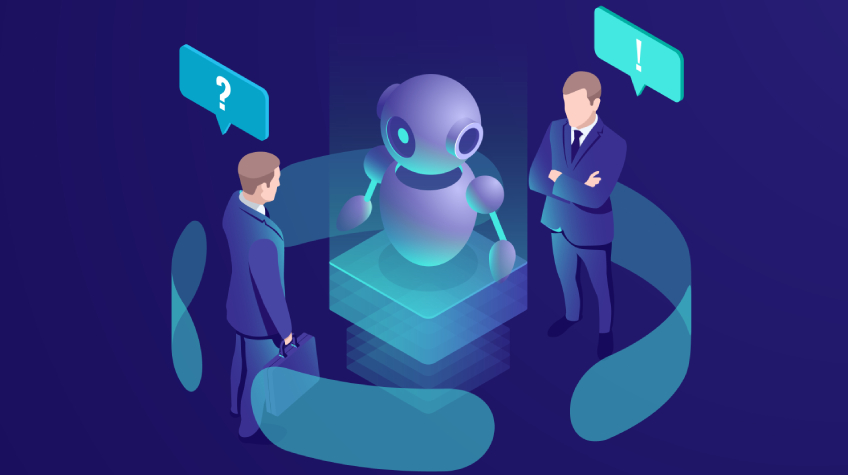
From voice assistants and facial recognition in mobile phones to fraud detection and surveillance software, there are many applications of artificial intelligence (AI) in our daily lives. And AI for recruitment is no different.
With many applications attracting hundreds or even thousands of candidates, increasingly more companies are using AI tools to quickly process large amounts of data to improve the efficiency, accuracy and productivity of HR teams.
In this article, we explore the different uses of AI for recruitment and its impact.
Benefits of AI for Recruitment
Over the years, AI has been used in recruitment to automate time-consuming, high-volume tasks, thus speeding up and reducing the cost of hiring.
From a business perspective, AI can also be leveraged to analyze the quality of applications and improve the company brand through the use of chatbots to communicate with candidates. Here’s a deeper dive into the benefits:
1. Saves recruiters time
Recruitment involves many repetitive tasks, such as writing job descriptions, posting job ads to job boards, candidate sourcing, CV screening, scheduling interviews and making phone calls, all of which take up a lot of time.
Many AI recruitment systems can automate some of these tasks, leaving recruiters time to build relationships with candidates. For example, AI is commonly used in recruitment automated tracking systems (ATS) to screen resumes and score candidates based on their suitability for the job, without which recruiters would have to spend hours scanning resumes.
As a candidate, you can ensure that your resume is ATS optimized by including keywords, essential sections (personal statement, work experience, education, skills) and applying proper formatting.
2. Improves candidate quality and objectivity
In addition to screening resumes, AI can help improve the quality of candidates and in turn, objectivity. For instance, chatbots can be used to guide candidates towards appropriate job postings and conduct pre-screening skills tests to assess their suitability, which aligns with the trend of skills based hiring. This approach focuses more on specific competencies rather than traditional qualifications alone, helping to match candidates to roles where their practical abilities are prioritized.
Despite anti-discrimination laws, unconscious biases still shape recruitment decisions. AI can counteract these biases by screening candidates objectively on their qualifications, experience and skills, rather than their gender or race.
3. Enhances the candidate experience and employer branding
The candidate experience is about how each stage of the recruitment process, from applying to onboarding, makes them feel. A positive candidate experience can attract more quality candidates and hence, more customers. A poor candidate experience, on the other hand, can burn bridges and result in word of mouth, thus damaging the company’s reputation.

One of the most important ways to improve the candidate experience is through consistent communication. AI can help bridge the communication gap between candidates and recruiters through the use of chatbots that answer queries in real-time, thus keeping candidates engaged throughout the process.
Also See: 60+ Artificial Intelligence Interview Questions & Answers
Pitfalls of AI for Recruitment
With many tools in AI recruitment still relatively new, errors can creep in, meaning candidates can miss out, even if they are qualified for the role. For example, a candidate might have the experience and skills that a recruiter is looking for, but fall through the cracks due to the formatting of their resume.
On the other hand, AI gives candidates the opportunity to cheat the system by stuffing their resumes with keywords or phrases.
Here are some other disadvantages:
1. Lacks the human touch
As advanced as AI can be, it’s not yet able to assess whether a candidate is a good cultural fit for the employer or whether they embody the qualities (e.g. communication skills) listed in their resume. Face-to-face interviews usually help determine these factors as they allow recruiters to pick up on emotional and behavioral cues.
There’s also the risk that using AI to communicate with candidates can come off as impersonal. A large part of engaging candidates during the recruitment is about building relationships; without human interaction and feedback, candidates may feel detached from the process.
2. Can learn biases in recruiting
Unfortunately, AI is not completely free of bias, as some AI recruitment tools can look through historical data to determine the profile of a candidate that a company is looking for. For example, LinkedIn’s job-matching AI was found to have been recommending more men than women for open positions, as it learned that more men tended to engage with more recruiters and apply for jobs than women.
Therefore, any AI tool or algorithm needs to be regularly audited to ensure that identifying information, such as gender, ethnicity or academic background is eliminated from data.
3. Requires a large amount of data
In order for AI tools to be effective, a large amount of data needs to be gathered, from applicant tracking during the hiring process to data on compensation for those hired. Equally, collecting data on unsuccessful candidates is important to determine why they were screened out and whether they might be suitable for other positions within the company.
Without data, AI can’t be used to unearth hiring issues, tweak job descriptions or interview questions or determine which recruitment channels bring in the most qualified candidates.
4. Raises privacy concerns
With the use of AI for recruitment, there are legal and privacy implications. While employers recognize, they’re not allowed to seek information from candidates about age, gender, marital status, etc., sophisticated AI algorithms may be able to discern this information directly or indirectly without proper or any consent from candidates.
This can have legal and privacy ramifications. The General Data Protection Regulation (GDPR) that aims to protect people’s right to privacy, stresses that data can only be collected for “specified, explicit and legitimate purposes” and that consent is required to process sensitive candidate data.
This means that companies while using AI for recruitment needs to implement appropriate measures, such as the encryption and anonymization of data to ensure compliance with privacy requirements.






